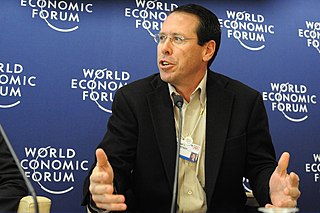A Quote by Daniel Lyons
The Kindle app runs on iPads, BlackBerry, and Android devices, so you can read your books wherever you want; with Apple, you're locked into Apple devices.
Related Quotes
I believe there's plenty of market for each; we're talking about an ecosystem that is going to support billions of devices, so a competitive landscape is good for consumers, developers, and the platforms alike. Apple brings a smooth elegance to its devices and platform, with the best marketplace experience to boot. Google brings a higher volume of devices as well as a more diverse ecosystem to interact with. The real story here is that Microsoft is nowhere to be seen, ending a two-decade monopoly and creating biggest opportunity for software startups probably ever.
I want to listen to my Apple Music on my iPhone. I also want to listen to it on my iPad. I want to play it on my Apple TV; I want to be connected everywhere I go. It fits into the puzzle of everything that is Apple, and, therefore, it should not be seen as some sort of separate entity that is trying to find its way.































